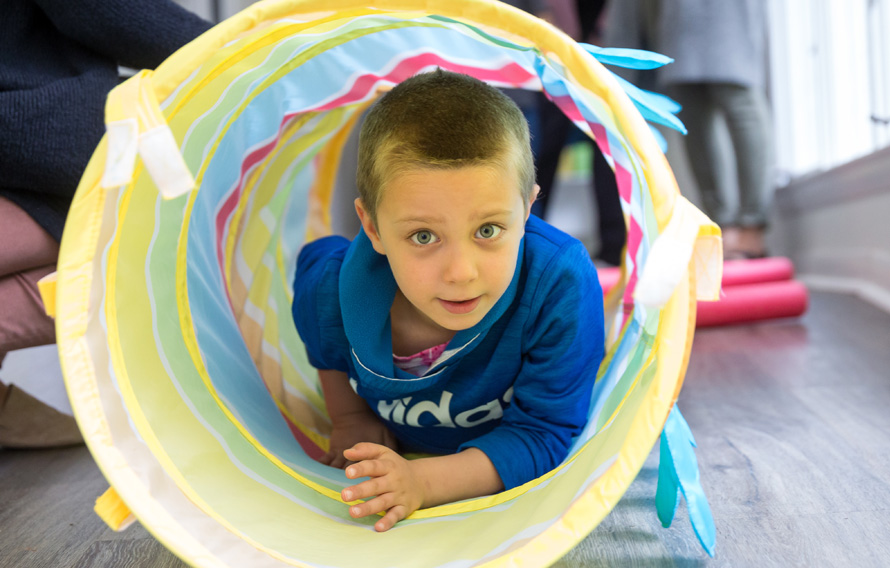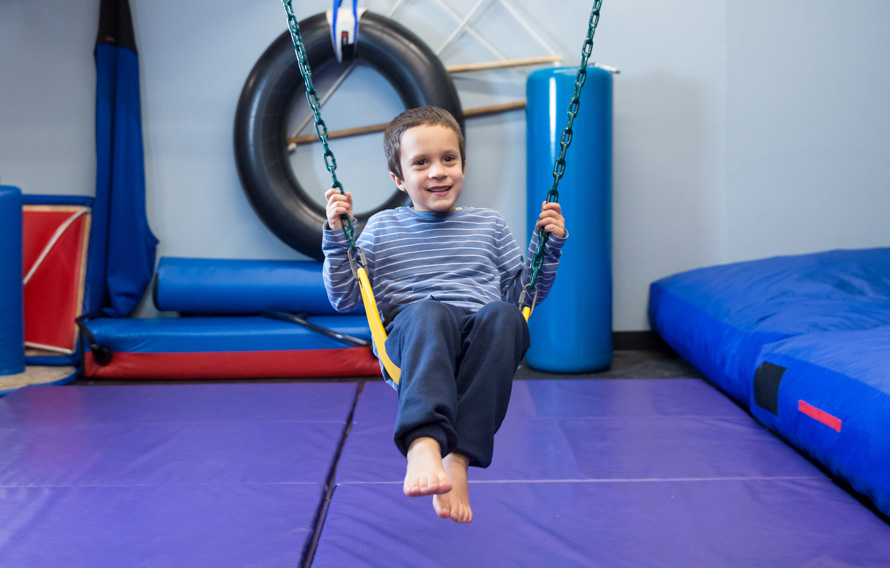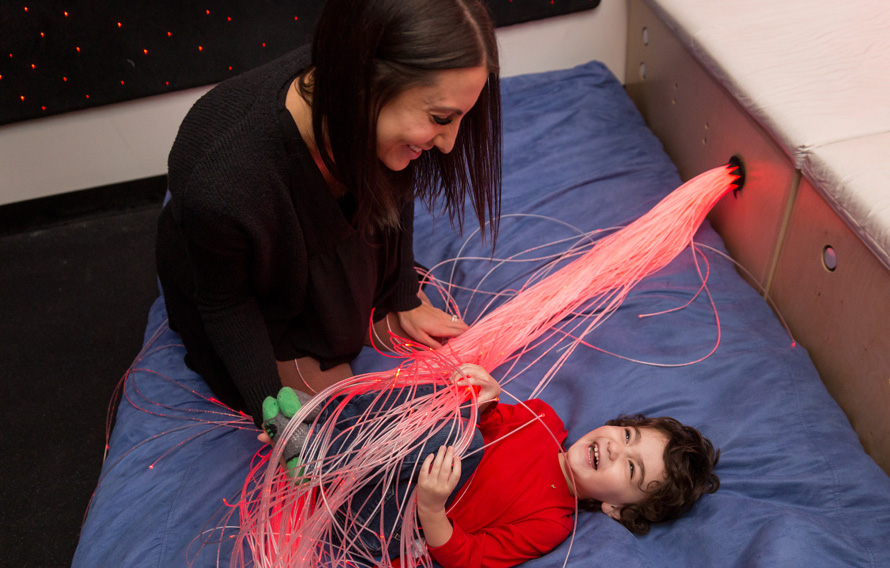Services
Occupational Therapy
What is Occupational Therapy?
Occupational Therapy (OT) is a diverse profession that addresses a wide variety of needs. The goal of an occupational therapist is to help improve an individual’s ability to participate in their daily occupations – activities that they like to do and need to do! These include but are not limited to, improving activities of daily living such as self-care skills, play and leisure skills, health and safety skills, and school/academic performance. In order to improve performance in these areas, OT’s address skills such as fine motor development, sensory processing, motor planning, eye hand coordination and visual motor skills to name a few! During occupational therapy sessions, treatment is child guided and our therapists focus on creating the ‘just right challenge’ for them. These carefully devised challenges foster individual growth and development, while maintaining a high level of excitement and motivation for each child.

Our Occupational Therapists work with a variety of pediatric diagnoses, including but not limited to:
- Attention Deficit Disorder
- Autism Spectrum Disorder
- Developmental Delays
- Down Syndrome
- Genetic Mutations and Deletions
- Gross and Fine Motor Coordination Disorders
- Learning Disabilities
- Sensory Processing Disorder
- Various Neurological and Psychological Conditions
In addition, areas of concerns addressed include:
- Attention and focus
- Clothing sensitivities
- Clumsiness
- Difficulty with bath time, hair brushing/cutting
- Difficulty with sleep and bedtime routines
- Dressing and shoe tying
- Eating and feeding
- Handwriting
- Poor coordination
Sensory Processing Disorder
Sensory processing refers to our nervous system receiving input in through our senses and turning that input into appropriate responses. These responses can include both motor and behavioral reactions. Successful performance of everyday activities requires us to have effective and accurate integration of our sensory experiences. Riding a bike, cleaning up toys, transitioning between activities and putting on our clothes are everyday examples that require our nervous system to effectively integrate sensations and produce appropriate responses.
In order to navigate through our day, all of our sensory systems (tactile, vestibular, auditory, etc.) must work in collaboration with each other and our nervous system must receive accurate information regarding our environment. When signals become crossed, misinterpreted, or go undetected, a Sensory Processing Disorder (SPD) may exist.
While we all struggle with sensory processing from time to time, there are many children who struggle with sensory processing on a daily basis. Children who struggle to effectively integrate their senses may present with numerous symptoms including but not limited to:
- Always “on-the-go” or is in constant motion
- Becoming easily overstimulated
- Clumsy, accident prone, difficulty acquiring new motor tasks
- Dislikes being touched, struggles with hair brushing/washing and nail clipping
- Jumping from activity to activity, difficulty sustaining attention
- Over sensitivity to certain clothing, will only wear specific types of clothes
- Shutting down or becoming physical in large crowds – birthday parties, family gatherings

Foundational Concepts and Current Research
Occupational therapist, Dr. A. Jean Ayres is known as the pioneer of sensory integration dysfunction. She was the first to define sensory integration as “the organization of sensation for use” and likened dysfunction to a “neurological traffic jam." Through her research, Dr. Ayres presented theories based on sensory integration dysfunction, assessment and treatment. Now known as Sensory Processing Disorder, this diagnosis continues to be a grey area within the professional community and often leaves families feeling confused and without answers.
Not recognized by the American Medical Association as an official medical diagnosis, families are often left search for a clear understanding of their child’s concerns. Today, we are grateful for Dr. Lucy Jane Miller and her colleagues at the Star Institute in Colorado for their never-ending commitment and boundless energy in the research and treatment of this disorder.
State-of-the-Art Multi-Sensory Environment
At The Talcott Center for Child Development, we place a great deal of focus on treating Sensory Processing Disorders. Through a comprehensive assessment, in addition to collaboration with other disciplines at our clinic – applied behavioral analysts, speech and physical therapists – we can determine the best way to address your child’s needs.
In order to provide our families with the most educated answers possible, we have invested a great deal into the education of our clinicians, as well as the equipment and treatment options offered in our center. We are proud to house a state-of-the-art Multi-Sensory Environment (MSE) designed in collaboration with Southpaw Enterprises. Filled with fiber optics, bubble tubes, and auditory experiences, our MSE is “accessible to all functioning levels, provides the opportunity for choice by the user, is meaningful, demand free and empowers the individual to overcome sensory deficits and allows them to take control to discover and explore the world around them.”
~Southpaw Enterprises

Specialized Programming
Our clinicians are trained in specific treatment interventions for sensory processing disorder, as well as specialized modalities and treatment techniques such as PROMPT, Integrated Listening and Interactive Metronome, all which further enhance the treatment process.



